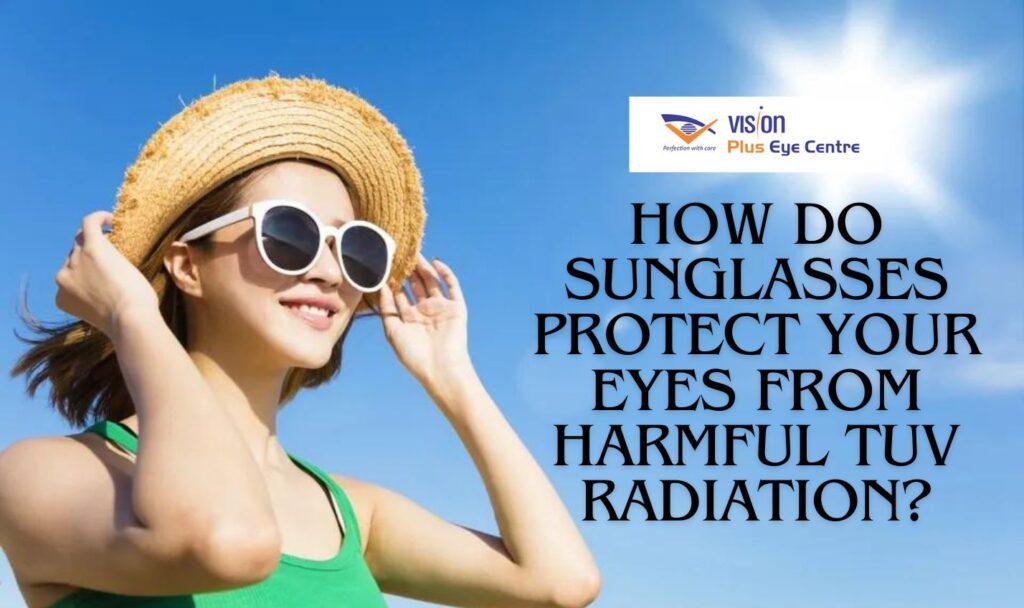
Exposure to ultraviolet (UV) radiation from the sun carries risks of eye damage if left unprotected. Sunglasses serve as an important shield against these invisible yet potentially harmful rays. But how exactly do they work to protect your eyes against TUV radiation?
What is TUV Radiation?
TUV refers specifically to UVC rays, which fall in the 100-290 nanometer (nm) range on the light spectrum. Along with UVA and UVB rays, they are part of the ultraviolet radiation that reaches Earth from the sun.
TUV rays have the shortest wavelength but highest energy of the three UV types. However, the ozone layer blocks most UVC rays from reaching Earth’s surface. Only small amounts interact with the upper atmosphere.
TUV Radiation Risks
Although UVC exposure is less concerning than UVA/UVB due to the ozone filtering, TUV rays can still pose risks. Even minimal exposure can lead to eye conditions like:
– Photokeratitis – inflammation of the cornea
– Conjunctivitis – inflammation of the outer eye layer
– Pterygium – tissue growth on the white of the eye
TUV rays may also contribute to cataracts and other age-related eye diseases over time. That’s why it’s recommended to wear sunglasses that offer UV protection.
How Sunglasses Block TUV Rays
Sunglasses shield your eyes from ultraviolet radiation in two key ways:
1. UV-Blocking Lenses
Special lens materials and coatings filter out UV rays before they can reach your eyes. This is the primary protective mechanism.
– Polycarbonate plastic lenses strongly absorb UV.
– Photochromic lenses darken when exposed to UV light.
– Anti-reflective coatings reflect and scatter UV rays.
2. Wraparound Frames
The shape and coverage provided by sunglass frames keep stray UV rays from sneaking in from the periphery.
Wraparound styles curve around the face and temples to minimize any gaps where unfiltered light could enter. Tight-fitting frames optimize UV blocking.
What Makes Sunglass UV Protection Effective?
Several factors determine the level of UV protection offered by sunglasses:
Lens Material – Plastic absorbs more UV than glass. Polycarbonate is ideal.
Lens Color – Darker tint can filter more UV but color doesn’t correlate precisely with protection level.
Lens Coatings – Anti-reflective and mirrored coatings boost UV blocking capabilities.
Lens Quality – Well-manufactured lenses without imperfections uniformly filter UV rays.
Frame Fit – Wraparound styles limit peripheral light exposure better than flat frames.
UV Labeling – Look for “100% UV protection” or UV400 designation indicating total UV blocking.
The Importance of Eye Care: Choosing Sunglasses for Optimal Vision Health
Do All Sunglasses Provide Sufficient Protection?
Unfortunately, not all sunglasses on the market offer adequate UV protection. Some may have subpar lenses and coatings that don’t effectively block UVA/UVB, let alone UVC rays. Poorly fitted frames could also allow light infiltration.
The safest bet is to only buy from reputable sunglass brands known for quality UV-blocking. Also check for “100% UV protection” labeling just to be sure. Don’t assume all dark lenses provide sufficient shielding.
Recommendations for Protective Sunglasses
When selecting sunglasses for sufficient TUV and UV protection, look for:
– CE mark or ANSI Z80.3 certification
– Polycarbonate, acrylic, or trivex lenses
– Darker tint, but don’t rely on color alone
– Anti-reflective, polarized, or mirrored coating
– Wraparound frames with wide coverage
– Snug fit against the face
– 100% UV or UV400 labeling
It’s also wise to limit sun exposure during peak hours, even with sunglasses. But properly shielding your eyes can go a long way in preventing TUV radiation damage over time. Don’t take chances with cheap sunglasses – invest in quality UV-blocking!
At Vision Plus Eye Centre, we prioritize eye health and safety. Sunglasses play a crucial role in protecting your eyes from harmful UV radiation. Our sunglasses feature specialized lenses that block out harmful UV rays, preventing potential eye damage such as cataracts, macular degeneration, and photokeratitis. By wearing sunglasses outdoors, you shield your eyes from the sun’s damaging effects and reduce the risk of long-term vision problems. At Vision Plus Eye Centre, we offer a range of stylish and protective sunglasses to keep your eyes safe and healthy. Invest in quality eye protection and prioritize your vision with Vision Plus Eye Centre.
Call Now at 0120-2481481, 2480480 +91 88003 13134 or email us at info@visionplus.net.in.
Book an Online Appointment: https://visionplus.net.in/contact/
About Author Bio: Dr. Ajay Aurora stands out as a highly respected Retina Specialist with over 35 years of experience. His distinguished career is marked by an unwavering commitment to advancing eye care and a deep-seated passion for clinical excellence.

